Is The Veterinary Profession Broken?
if you found this article interesting please sign up for my Newsletters and get all my latest articles, information and comments.
Newsletter Sign Up
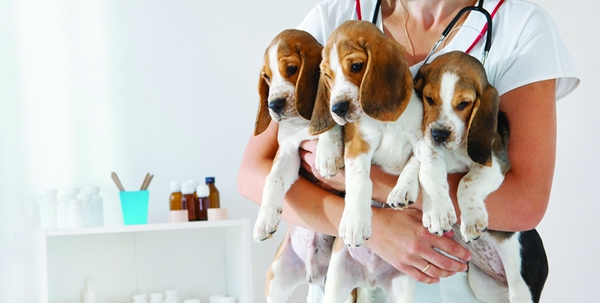
Introduction: I remember when the veterinary profession was a well-respected, honest, and caring profession.
We have all probably read books or watched a series about an amazing vet called James Herriot, his real name was (James Alfred Wight)
He practised as a Vet in the North East of England in a lovely market town called Thirsk, 25 miles from where I was brought up. His books are funny, insightful; and self-deprecating. But what really made him a great vet was his love of animals and his empathy with them and the people who owned them. He was incredibly well respected in his community, which is more than I can say for many vets I meet in my chosen profession as a dog behaviourist. Like any job or profession, there are good and bad in all of them.
It is important to say that there are some great Vets out there. They are the ones that can walk on water as far as I am concerned. Unfortunately, I believe they are now in the minority. So, what has really happened to our veterinary profession?
Legislation: In 1999 something seismic happened to the Veterinarian Profession. Tony Blair in his infinite wisdom along with John Prescott (No wisdom at all) changed the law to allow non-vets to own veterinary practices. It still requires a Vet to work in that practice but the driving force is often the owners and the returns they get from their practices.
This opened the door to venture capitalists and investors to buy into a tranche of little goldmines. Unfortunately, when that happens money and profit become the corporate’s main aim. Profit should never be the main driving force in any type of medical care, be it human or animal.
We are nearly 22 years later and many of what I would call old-school vets have retired. Sadly the James Herriots of this world are a dying breed. Well over 45% of all the Veterinary Practices in the UK are now group and corporate-owned. These figures are 18 months out of date as the moneymen are busy hiding the scale of the takeovers. I would calculate that at least 65% are now probably group owned.
The Loss of Independent Vets: My own Vet retired 5 years ago. He was my vet for 35 years. the value of his two practices and the goodwill and loyalty he created over many years of brilliant service became his pension. He was not just my vet he was also someone I could call a friend.
Unfortunately, when we last said goodbye he had sold his practice to one of the big corporate groups. There was probably a bidding war and he took the highest price possible. After all, that was what he worked his life for.
Having said that he appeared embarrassed to tell me he had sold out to Medivet, one of the larger and more aggressive veterinary groups available today. I am afraid that was the last time I walked into that practice.
Do You Know If Your Vet is a Corporate Group or Independent?: It is not all that obvious, my own ex-practice still goes by its old name as do many others. The long-standing clients would know that it was under new management, but to the newcomer, it is not always apparent.
The top 4 Corporate Veterinary Groups in order of the number of individual practices they own are as follows:

(1) The CVS Group, Currently the largest veterinary group
(2) Independent Vetcare
(3) Pets at Home
(4) Medivet
Though it is extremely difficult to get up-to-date figures as they appear hidden and guarded, it has been published in 2018 that the big 4 then owned over 30% of the total veterinary practices in the UK.
There are other very large players coming into the market such as The Mars Corporation which makes Pedigree Chum and many other brands. it is probably the majority of all Vet practices that are corporately owned. Certainly in excess of 60% plus.
The majority of these groups are owned by Venture Capitalists whose whole reason for existence is profit. Read these depositions of employees and vets (1) CVS Group Employee Reviews (2) Disgruntled and Concerned Vets
Many of these Vets and Nurses appear to suggest that profit rather than the animal’s best interest is at the forefront of these practices.
My Other Major Concerns: I wrote an article in September 2016 called Why Are Our Dogs Dying so Young? It was related to the largest research ever completed on longevity in dogs, involving 191 breeds and a total of 48,891 dogs.
It was commissioned by the Kennel Club. What the KC discovered was that dogs were dying 11% earlier over a ten years period from the last research. That means that across all the breeds, Kennel Club registered dogs now only live an average of 10 years, down from 11yrs 3 months in 2004.
That is a shocking statistic by any stretch of the imagination, as all the information we were given was that dogs were living longer than ever before. We were told that this was due to advanced veterinary procedures, preventative health care and balanced diets. It appears something has gone very seriously wrong and something is killing our dogs.
Strangely enough, this earth-shattering announcement was ignored by nearly all and sundry. The BVA (British Veterinary Society) and the RCVS (Royal College of Veterinary Surgeons) appear to have totally missed this incredible statistic. Almost to say “it was nothing to do with us”
Well, I believe it has everything to do with them. I did not see any mention in any of the trade magazines like the Pet Gazette (not surprised). Totally ignored by the doggy magazines, (can’t upset the advertisers). The Telegraph did a piece on it and Pedigree Dogs Exposed and that is about all.
It had also taken the KC well over a year to report on its 2014 health survey a follow-up to its 2004 survey. I think they were afraid because It makes for very grim reading. However none of the few that actually commented gave any indication of why the dogs were dying so early, so I decided to investigate culminating in my article (3) Why Are Our Dogs Dying Early?
In that article, I lay out three key elements that I believe are suspects in the early demise of our dogs. These three are not the only ones but they are probably the three strongest contenders. It may not surprise you to know that Vets are to some extent wholly or partially involved in all three.
The cost of insurance and veterinary fees have skyrocketed over the last twenty years, far in excess of inflation. I believe a large part of that is the corporate involvement, thank you, Mr Blair, yet another reason to dislike your tenure. But he cannot take all of the blame. I believe that some (not all) vets are looking at their clients as cash cows.
Having said that it is not easy for Vets, they have one of the highest suicide rates of all professions. I am sure that this is caused in some part by the pressure exerted on them to make the owners of the practices investments highly profitable, and the fact it is now very difficult for them to become equal partners in the practice they have made successful. Unlike the aforementioned James Alfred Wight.
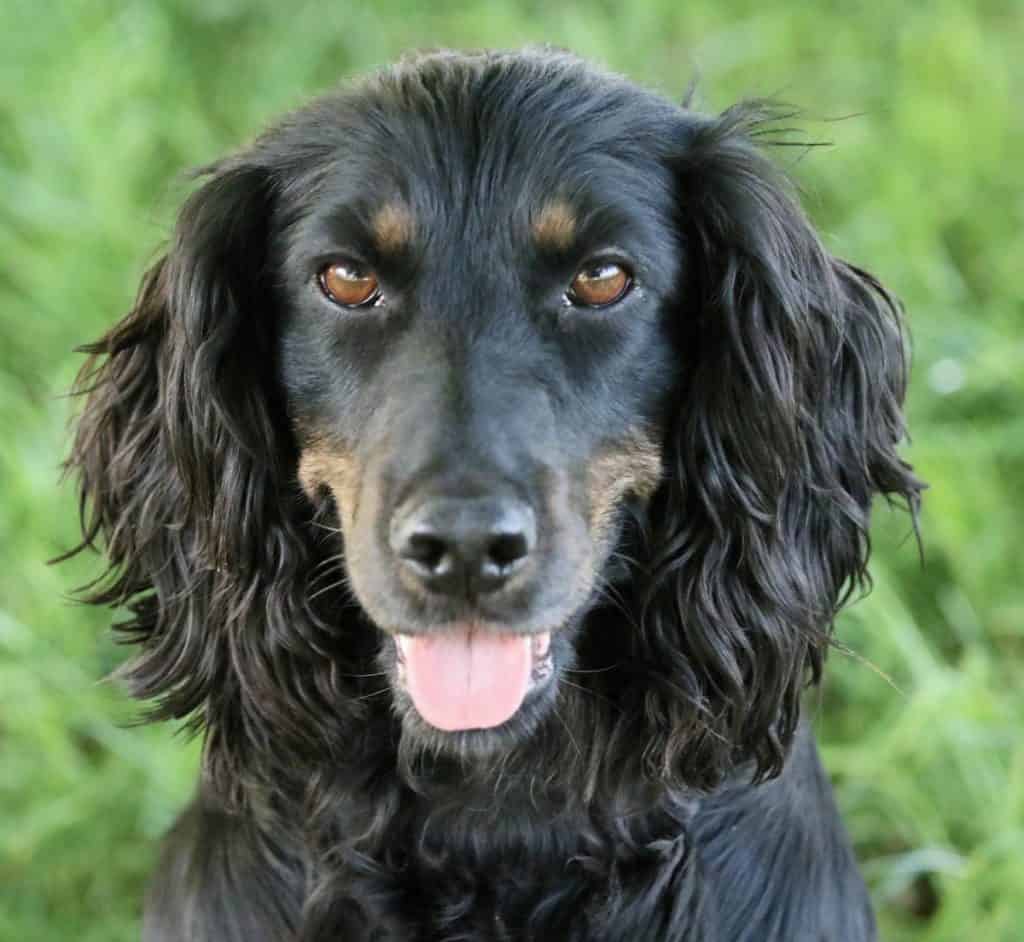
The Vets Oath: At one time I believe the Veterinary profession was required to swear an oath something like “Primum non-Nocere” (First Do No Harm)
Certainly, this is the case in America but in the UK this has changed quite dramatically
They now swear a long rambling oath swearing fealty to the Royal College of Veterinary Surgeons. Probably the worst and most archaic professional association in the World.
Surely it should be the animals that come first, not a professional body that has presided over what I believe is a systemic failure in a profession that was once venerated? I have never used Vets that belong to any of the large groups, I always use an independent that I know and can trust.
I want to see the same vet who knows my pets and understands my concerns about overvaccination, neutering, overmedication and specialist referrals of our animals for the slightest thing. I want my vet to be compassionate and caring as well as professional. As a behaviourist, I have always tried to act in that way.
I do not want reminders that I should have unnecessary annual vaccinations and that when I take a puppy in for its first Jabs I don’t want the vet starting up the mantra of neutering. Despite the fact that there is empirical evidence that neutering, especially to young immature dogs (Pediatric Neutering) can create serious health and behavioural issues in the future. Are you aware that the RSPCA and some vets are neutering dogs as young as six weeks of age?
To become a vet you go through a lengthy qualification period. If you are intelligent enough and successful you will join a profession that has been in existence since Claude Bourgelat founded the first veterinary school in Lyon, France in 1761. I do not believe that most of these Vets are not aware that some of the procedures they are recommending and regularly performing have a negative effect on that animal’s health and well-being in the future. (5) Dangers of Neutering Dogs (6) Annual Overvaccination Dangers.
I think it is time the Veterinary Profession took a long hard look at itself and some of its now-archaic practices. Their controlling body the Royal College of Veterinary Surgeons should look at the science now pointing to overvaccination and paediatric and adult neutering as unnecessary and frankly immoral. They should look at the science that says core vaccines create immunity for at least 7 years and in most cases life. and that non-core vaccines like Leptospirosis should not be given as standard to all dogs.
Why not sterilise instead of crudely removing testicles and ovaries that rob their bodies of three vital hormones Progesterone Oestrogen and Testosterone? Despite what the Vets tell you they are not optional extras like a Sat Nav or Reversing Cameras.
Ask any lady that has gone through their monthly cycle or the change. We inflict that on our dogs in many cases whilst they are just puppies. I believe that is a national disgrace and at some time in the future, it will be seen as barbaric. I would not be able to sleep at night.
As a footnote In 2017 the Skeldale Veterinary Practice, a partnership once run by Alfred Wight and Donald Sinclair (aka James Herriot) and Siegfried Farnon sold out to Medivet, a chain of more than 260 vet practices backed by the London-based private equity firm, Inflexion.
That veterinary practice has just announced it will no longer be accepting large animals and will be only dealing with small pet animals. So will the latest TV series called All Creatures Great and Small be altered to All Creatures That Are Small? I presume there is far more profit in treating our dogs, cats and hamsters? Perhaps treating sheep may not be so easy to fleece us of our hard-earned cash.
©Stan Rawlinson Dog Behaviourist and Obedience Trainer 18th June 2020
Updated January 2023
(1) CVS Group Employee Reviews
(2) Disgruntled and Concerned Vets
(3) Why Are Our Dog Dying Early?



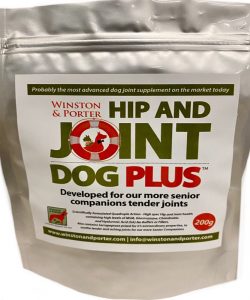
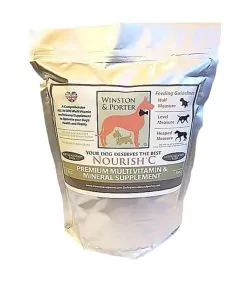

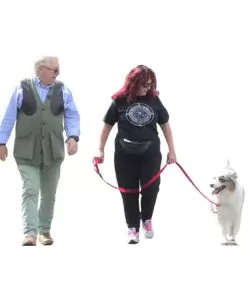



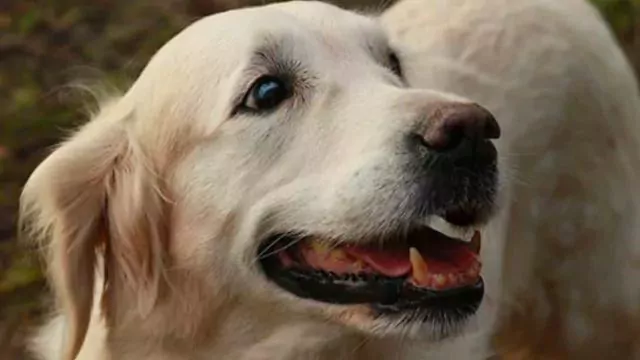

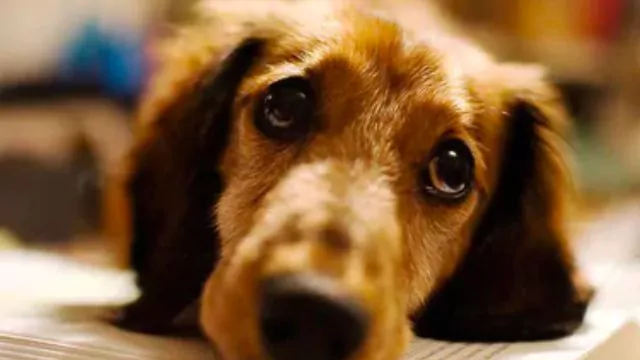

Comments (10)
Vets – shame on you
‘How do vets sleep at night’ has become the stock phrase uttered by myself & friends, anytime we have to see one. Yes, they are under pressure by corporate interests (being sued for daring to suggest Frontline no longer works), but isn’t it time we all stood together and found a way to fight back?
Vets – shame on you
I couldn’t agree with you more. But frontline is just the tip of the iceberg of the chemical and products they are pumping into our pets unnecessarily. It would take a 10.000-word article for just to cover s small part of the damage done to our animals. Let me give you one that has recently really annoyed me. The Breeder gets the puppy vaccinated the owner goes to the Vets to have the second vaccination the Vets says they do not stock that brand therefore they will have to start all over again. Not only do they do this for the money, it is the potential damage they cause through overvaccination including adverse reactions to an immune system not fully formed but also to the delay in being able to socialise this puppy is nothing less that than criminal and professional negligence.
Any Vet can get any brand they want, and why do they have to vaccinate twice? and in this case three times or more. That is another scam related to when we did not wean our dogs many years ago until 8 or 9 weeks therefore whilst still taking the mothers milk the antibodies in that milk and colostrum could affect the efficiency of that initial vaccine. Now we start to wean at 3.5 weeks and most are fully weaned by 7 weeks, therefore, why do we still need the second vaccination?. MONEY AND PROFIT.
Is the Veterinary profession broken.
Unfortunately it appears to be and unfortunately the RCVS seem not to care or possibly have not noticed. 21 years on they still only recognise complaints against a named vet not a Corporate because only vets own practices.The RCVS haven´t in fact changed very much in 50 years and still reject 99% of complaints.They refuse to intervene in excessive fees and the monopoly practice of profit before welfare Corporates and perhaps a reason why dogs are not living as long is because many are not living at all economic euthanasia in the face of extreme fees and rising cost of insurance. It is not only clients and pets that are feeling the impact of the failings of the RCVS.Vet professionals are suffering the stress of pressure, and uncertainty , and how many are leaving the profession or feel they are no longer fulfilling their vocation …isn´t the suicide rate very high amongst vets.The Profession deserves better and certainly a better body to govern it.
Is the Veterinary profession broken.
I totally agree with everything you have said and this brings us to the Crux of the matter. Yes, vets have a very high suicide rate in their chosen profession and yes I think pressure from corporate money men play a part. However, if vets spoke out more against over-vaccination, paediatric neutering and unnecessary tests then it would have to change. Currently, that is not happening and the high rate of suicide in vets and veterinary workers is unacceptable. I believe it is happening because of the moral and ethical pressures put on them.
In defence of vets
As a young vet I feel like I should stand up for my profession. We’re not perfect. As individuals we all have the same ups and downs as everyone does in life, we have good days and bad days, we have mortgages and kids or divorces or migraines to deal with just like everyone. As businesses, again, there are good and bad businesses and there are pros and cons to independent and to privately owned practices.
I don’t own a practice, but the fact of the matter is I could never afford it. I left university with £60k of student debt. I now have a mortgage as well and my salary is in the same bracket as a senior teacher. (im in my early 30s). This is normal for vets under 35 or so(and it’s not much better for the vets over 35! And even worse for vets under 30 and those going through uni now) There is no way any bank would finance me or many of my colleagues to have a partnership in a private practice, leaving partnership within a corporate the only remaining option because it’s cheaper. With that cheapness comes less control over your business however.
Is there a potential issue with the monopoly of corporate ownership, yes I’m sure there is. But if you guys feel passionately about it then group together, buy your own practice, run it the way you want to and find like minded vets!
Regarding the death rates in pedigree dogs, to jump to the conclusion that it is vaccination is the root cause is not scientifically rigorous. Yes vaccination has increased, but it has also increased in non KC registered dogs, what is their death rate? There are lots of other potential causes as well… poor genetic selection, in breeding, an increasingly disposable pet culture amongst some owners, increased cost of care making treatment of chronic disease unviable, poor reporting of death rates in the past, or improved reporting now might also be contributing. One of the most depressing part of my job is when people want to euthanise puppies in litters because they don’t meet breed standards! I have to work really hard to talk some breeder out of this! I see lots of expensively purchased dogs owned by people ill equipped to look after them, the dogs develop behavioural issues and then owners want them put to sleep. I am NOT saying this increase in death rate is the fault of owners, but what I am saying is that to jump to the conclusion that vaccination is at the route of this does a disservice to a terrible statistic that should be investigated. Unfortunately research the like of which would be required to address that question is expensive, the RVCS and BVA can’t really fund that sort of work as it’s not in their remit, it is within the KC remit, and a few other dog charities, so if we want to get to the bottom of this then it is them we need to petition to fund this work. And if you don’t trust vets to do it then get also petition to have the research done by biologists or independent statisticians. But don’t just blame vets. Every single one of us came in to our profession because we want to help.
When I left university I was the lowest paid out of all my non vet friends, they all went on to work in high paid city jobs, I earn half of what my doctor friends earn. Vets have one of the highest fates of suicide of any profession, because it’s hard, because the hours are long, because the pay isn’t that great when you account for the amount of debt we all have, and because we care so much that we don’t sleep at night when things go wrong.
We’re not perfect, but maybe we can fix these problems together rather than just feeding a culture war online of vets v dog lovers. We should all be on the same side!
In defence of vets
A well put together a defence of the profession and I feel for you. I am aware of the depression anxiety and one of the highest rates of suicide of any profession and I have alluded to that in the article. But that does not take away the wrongs of your governing body and it does not answer the questions of the procedures like paediatric neutering that is causing untold harm to the dogs. The dog owners that are talked into this procedure are not told of how the endocrine system works either through ignorance or greed the Vets are turning a blind eye to the science that shows this procedure causing both medical and behavioural problems in the future. There are viable alternatives vasectomies for males dogs and hysterectomies for females. Ther is strong scientific evidence to show how dangerous these procedures and I state these in my article Neutering in Depth As for vaccinations the Science is out there that shows that core vaccinations last for at least seven years and most for life. I am not an anti Vaxer I am an Anti-Overvaxer. And I am sure you are aware and that vaccinations are the Goose that laid the golden egg it is a disgrace that the veterinary practice uses scare tactics to increase profit on the back of making pets ill.
RCVS- Shame on you
Yes it is and the fault lies with the RCVS and not with vets or their clients.A self serving governing body that hides behind a 50 year old Act and agrees that the Act is antiquated but has done nothing to change it, it ignores complaints, its policy makers work for Corporates and do nothing to control or regulate fees or Corporate monopolies, fees that result in unaffordable insurance and economic euthanasia. Profit before welfare denys vets their vocation, clients justice and pets dedicated care..The RCVS has no desire or ability to mend the profession, vet professionals , clients and Government need to intervene to re-establish the faith that we used to have in Independent vets.
Vets
We had a wonderful vet for 15 years. We have whippets and his mother used to breed whippets, so he knew more about them than your regular vet. I used to take my whippets to home whenever I was worried about anything. He had a look, if it was nothing, he didn’t charge me anything, just happy that I was a responsible dog owner. Over the years more vets joined the practice and started to charge more and more money. My old vet retired and the way we are treated now is as you said, like cash cows. One of my whippets was having trouble jumping up and walking up the stairs. Saw the vet, checking his movement, his temperature, his heart, gave him an injection against pain. Got a small bottle of Loxicom and £178 bill to go with it.
It is a shame that especially the younger vets are so keen to stick needles in our dogs and prescribe stomach tablets at £8 each because a dog is vomiting.
Hmmm
I’ve a friend who is clinical director of a vet practice so when some months ago my wife and i got a puppy I envisaged a given that I would register puppy with the friends’s practice. But we haven’t. the practice used to be an independent until, some years ago, the owner retired and sold to a corporate. That didn’t bother me so much as when I was considering whether to register and after research discovered that the corporate now has a new investor, Mars.
There are several vets in our town, of which only one is an independent. One of the others was highly-regarded until the owner retired and sold to a corporate. We have registered puppy with the independent which hopefully will remain so for the duration of puppy’s life. Our previous dog had been looked after by this practice 0 until she passed away prematurely (age 10) with what i was told was a rare syndrome – and we know puppy is in good hands.
In defence of vets I’m not convinced that the shorter life span is necessarily vet-connected. I would agree that the corporates are probably more profit-motivated, infiltrating training schools etc as well, but ultimately the health of a dog is the responsibility of the owner. I would think the more likely culprit is the quality of the food and drink that the dog is fed every day, the life-style of its surroundings and the amount of freedom it receives.
On the principle that a vet is a private sector health-care business, it’s not in the vet’s interest to ‘kill’ the customer or fleece the owner. The owners may not know what’s in the drugs and medication and vaccines that the vet administers, let alone the worming and flea tablets and potions, but somewhere along the line one has to trust.
Vet practices no longer doing sheep and other farm animals is i would think more to do with not finding enough young vets willing to get their hands dirty from standing out in a field at night in all weathers; that and farmers not the quickest of payers.
When our local veterinary practice became part of a private equity firm, it got extended with new facilities and the prices went up astronomically. Worse, what used to be given as part of ‘patient care’ suddenly became chargeable, including a warm blanket for when my dog came round after an op. You only have to look at the very flash cars driven by vets these days to see where, for most, their interests lie…
Comments are closed.